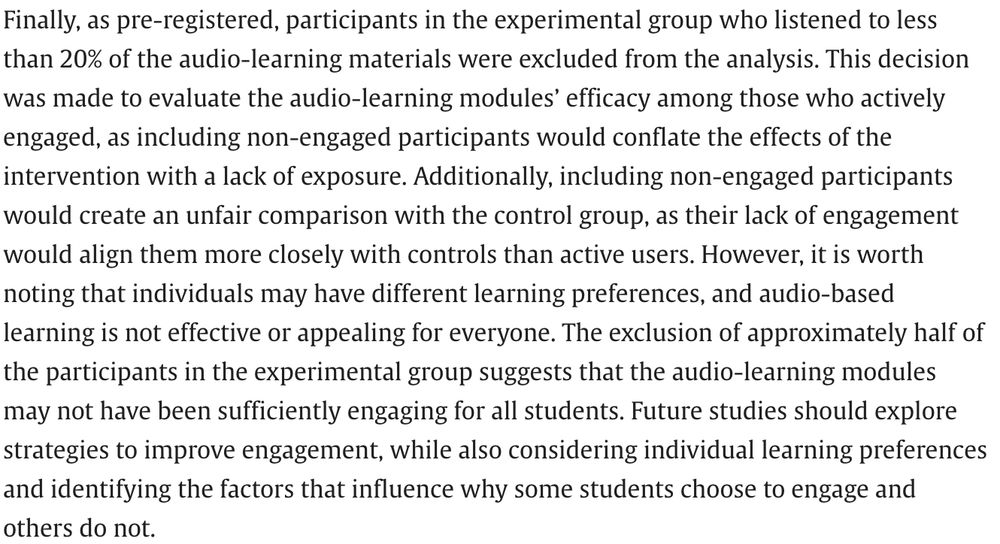
Marko Bachl
@bachl.bsky.social
communication research at @ifpuk-berlin.bsky.social @freieuniversitaet.bsky.social
Warning: I have been told by German students that they associate the English term "back door" not with any doors but use it almost exclusively in a very different context that I really don't want to talk about in a Methods lecture...
September 9, 2025 at 8:42 PM
Warning: I have been told by German students that they associate the English term "back door" not with any doors but use it almost exclusively in a very different context that I really don't want to talk about in a Methods lecture...
Reposted by Marko Bachl
🤖 In einer Zeit, in der KI-basierte Systeme und Plattformen tief in unser tägliches Leben eingreifen – von Informationsverbreitung bis hin zur #Meinungsbildung –, stellt sich die dringende Frage:
July 14, 2025 at 10:22 AM
🤖 In einer Zeit, in der KI-basierte Systeme und Plattformen tief in unser tägliches Leben eingreifen – von Informationsverbreitung bis hin zur #Meinungsbildung –, stellt sich die dringende Frage:
So all students in the control group would get a 0 on the “minutes listened to the podcast” measure? And then Assignment -> Minutes listened -> learning outcome?
Or should the use a general measure like “time spent on course materials” instead?
Or should the use a general measure like “time spent on course materials” instead?
July 12, 2025 at 8:29 AM
So all students in the control group would get a 0 on the “minutes listened to the podcast” measure? And then Assignment -> Minutes listened -> learning outcome?
Or should the use a general measure like “time spent on course materials” instead?
Or should the use a general measure like “time spent on course materials” instead?
Yes, I can genuinely understand the general intuition why one wants to omit non-compliers from the treatment group, because how would the treatment work if they did not take it?
But not to see the obvious selection bias in favor of the interested students and having a very clear COI, idk...
But not to see the obvious selection bias in favor of the interested students and having a very clear COI, idk...
July 12, 2025 at 6:28 AM
Yes, I can genuinely understand the general intuition why one wants to omit non-compliers from the treatment group, because how would the treatment work if they did not take it?
But not to see the obvious selection bias in favor of the interested students and having a very clear COI, idk...
But not to see the obvious selection bias in favor of the interested students and having a very clear COI, idk...
Reposted by Marko Bachl
I did not see the "declaration of competing interest" before. Now this seems to be problematic when you decide to use a data cleaning procedure that would likely bias your results in a predictable way, even if it is preregistered...

July 11, 2025 at 7:19 AM
I did not see the "declaration of competing interest" before. Now this seems to be problematic when you decide to use a data cleaning procedure that would likely bias your results in a predictable way, even if it is preregistered...
And the hype is sure to follow on the hype network

July 11, 2025 at 7:27 AM
And the hype is sure to follow on the hype network
I did not see the "declaration of competing interest" before. Now this seems to be problematic when you decide to use a data cleaning procedure that would likely bias your results in a predictable way, even if it is preregistered...

July 11, 2025 at 7:19 AM
I did not see the "declaration of competing interest" before. Now this seems to be problematic when you decide to use a data cleaning procedure that would likely bias your results in a predictable way, even if it is preregistered...
I get the logic of the limitations statement ---how can someone be affected if they don't comply with the treatment---, but this seems like a typical example of how "Conditioning on Posttreatment Variables Can Ruin Your Experiment" (doi.org/10.1111/ajps...)

July 11, 2025 at 6:51 AM
I get the logic of the limitations statement ---how can someone be affected if they don't comply with the treatment---, but this seems like a typical example of how "Conditioning on Posttreatment Variables Can Ruin Your Experiment" (doi.org/10.1111/ajps...)

